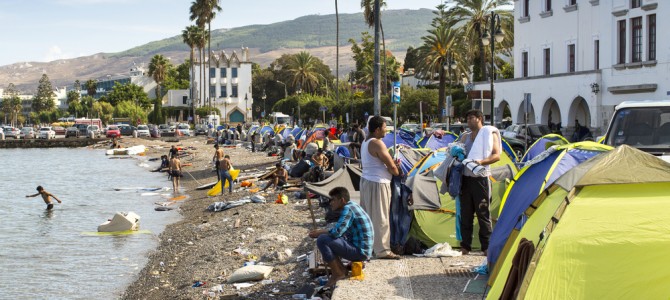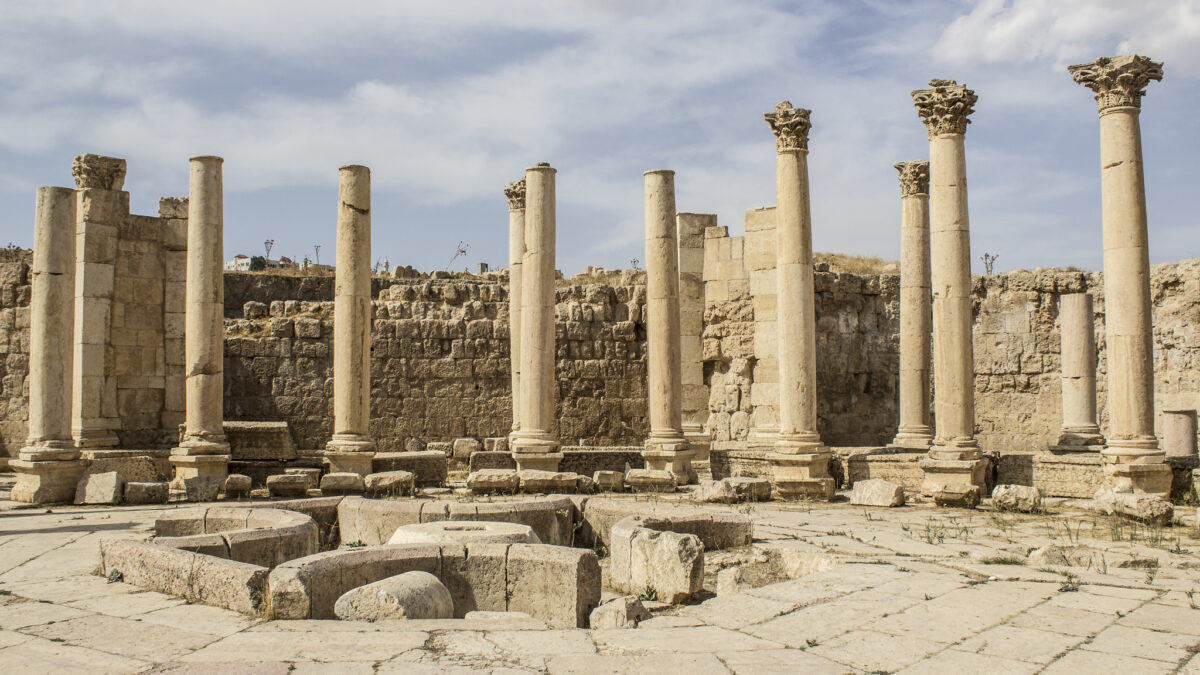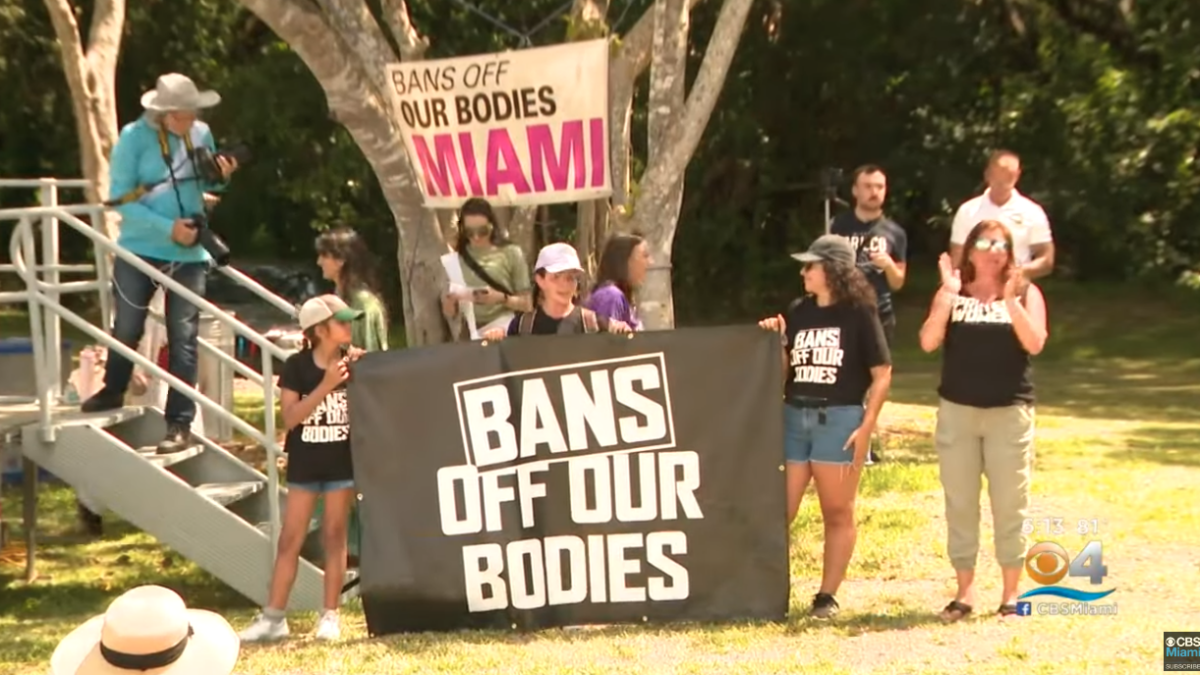
Truth about the refugee crisis in Greece is not easily conveyed in a 30-second news story. It has been almost a year since the mass migration began. In that time, more than a million souls have made their way to Europe. Most made their way to Germany or Austria, but the thousands of people crossing borders each day created tension.
In late February the Balkans route was closed, first only to Afghans but then later to Syrians as well, trapping any new arrivals in Greece. The Greek islands were told to hold as many of the new arrivals as possible. The mainland was in chaos, no contingency plans had been created for such an event, and thousands of migrants were strewn across the country from Athens to the border with Macedonia.
The Greek government rushed to set up camps and the islands continued to receive more and more people until the European Union and Turkey came to an agreement regarding the refugees. Once the deal was announced, the Greek government ordered all current refugees who had arrived before midnight March 20 be sent to the mainland, and those who arrived after the midnight deadline would be detained. Thus the conditions for the current situation were born.
Refugees Flee War-Torn Regions
Currently, the migrants fall into two categories: those who arrived before the EU-Turkey deal went into effect and those who arrived after it. Those who arrived before the deal are scattered around various camps and cities on the mainland, all of various quality and run by various groups. Those who arrived after the deal are being detained on the islands they arrived on, pending a legal inquiry to determine if they are eligible to claim asylum. All of them now find themselves stuck in Greece, attempting to adapt to their situation.
Where do they come from? According to United Nations statistics, the majority come from either Syria or Afghanistan, followed by Iraq and Iran. The ones who come from Syria are just as likely to be fleeing Bashar al-Assad as they are to be fleeing ISIS. Many I talked to recalled Syrian and Russian jets indiscriminately carpet-bombing villages with no military value.
Iraqis and Syrians fleeing ISIS recall draconian laws, massacres, and acts of terror meant to intimidate the population. One gentleman was hung from his arms, beaten, and in various places burned with fire. He only escaped because an airstrike blew up the building he was in, and somehow he miraculously survived. Among the thousands fleeing ISIS include Yezidis, Christians, Kurds, and other religious and ethnic minorities. Each has his own stories to tell.
One Yezidi boy traveled with his uncle and uncle’s family because ISIS killed his parents and siblings. Most Syrians I spoke to saw coming to Europe as a means to escape the fighting rather than a means to escape economic hardship. Another gentleman I spoke to fled with his family to three different cities in Syria before coming to Europe. But since most did not want to stay in Turkey, where the situation for refugees is even worse, they made the risky crossing into Greece.
Many Afghans also came to Greece fleeing violence in their country. Among them were individuals who had worked for U.S. and coalition forces but now had to flee out of fear for their safety and the safety of their families. According to the UN, the majority of the Afghans arriving in Greece come from the Hazara ethnic minority and are Shiites. Facing persecution for their ethnic background and religious beliefs, they have fled their country in large numbers.
Waiting Interminably Breeds Despair
The crisis has been put on a low simmer. Part of the current tension revolves around Greek asylum procedures, which were never meant to process 50,000 people at once. Obtaining asylum in Greece was tricky prior to the crisis, and involved a long fight with the Greek bureaucracy. The government is so backlogged it has opened a Skype account where refugees can attempt to call in and begin to file their claims online. But during my time there, I never met anyone who successfully contacted a Greek official by calling this Skype line.
The asylum process is even more challenging for those who arrived after the EU-Turkey deal. Both sides promised that any new arrivals in Greece would be processed within two weeks. Theoretically this would be enough time for a judge to determine if they were eligible to legally claim asylum as refugees. The deal also allows them to appeal their case to a higher Greek court if the first judge denies their claim.
The EU promised that it would provide Greece additional lawyers and judges to speed up the process. But this hasn’t materialized as promised. Rather than hundreds of lawyers and judges, the EU has sent dozens. In the meantime, the new arrivals wait in the island camps unsure of their fate. This situation is breeding unease and tension as men and women lose hope and grow more desperate.
The ethnic tension between Syrians and Afghans is another continuous issue in Greece. Syrians distrust the Afghans and often associate them with the Iranian government, which is supporting the Assad regime. The Islamic Republic of Iran is known to send Afghan volunteers to fight in Syria to avoid large numbers of Iranian causalities. It has been reported that some of these Afghan volunteers, after earning thousands of dollars fighting in Syria for the Iranians, have used the money to pay for their journey to Europe.
The Afghans in turn resent that the Syrians look down on them. As a result, the two national groups do not get along well. Fights are not unheard of; once a large brawl broke out in a camp at the main port of Athens and it took three hours for riot police to put it down. Some of the camps are now segregated, Afghans and Iranians in one while Syrians and Iraqis are housed in another. The Greeks themselves are left shaking their heads.
No Easy Answers to This Humanitarian Crisis
All this comes at a time when the Greek nation is weakened. The country has never fully recovered from the political and economic crises of the past few years. Unemployment remains at an all-time high and confidence in the political system remains at an all-time low. On top of all this has been added a humanitarian crisis, the likes of which Europe has not seen since the end of World War II. The EU expects the Greek government to handle this crisis while making the financial sacrifices necessary to keep Greece financially solvent. This adds yet another layer of resentment and leaves some Greeks questioning the priorities of their elected officials.
It should be apparent by now that there is no easy solution to this crisis. The masses which now find themselves upon Greece’s’ shores cannot be easily dismissed or sent back. To cast out the victims of genocide is inhuman. To send away the victims of sex-based violence, the women fleeing Afghanistan with their children, from child marriages and radicalized families, is unjust. To deport those who are, according to legal definition, refugees is unlawful.
But how do you verify an individual’s story? This task can be extremely difficult. Some people had no paperwork to prove who they are. Some of these cases are completely legitimate. For example, Yezidis who fled ISIS probably left everything behind in their houses and did not return to collect their documents. So what then? There are no easy answers.
What is apparent is that the status quo in Greece cannot continue indefinitely. The migrants cannot live forever in camps in a legal limbo, and the Greeks cannot live with yet another crisis.









